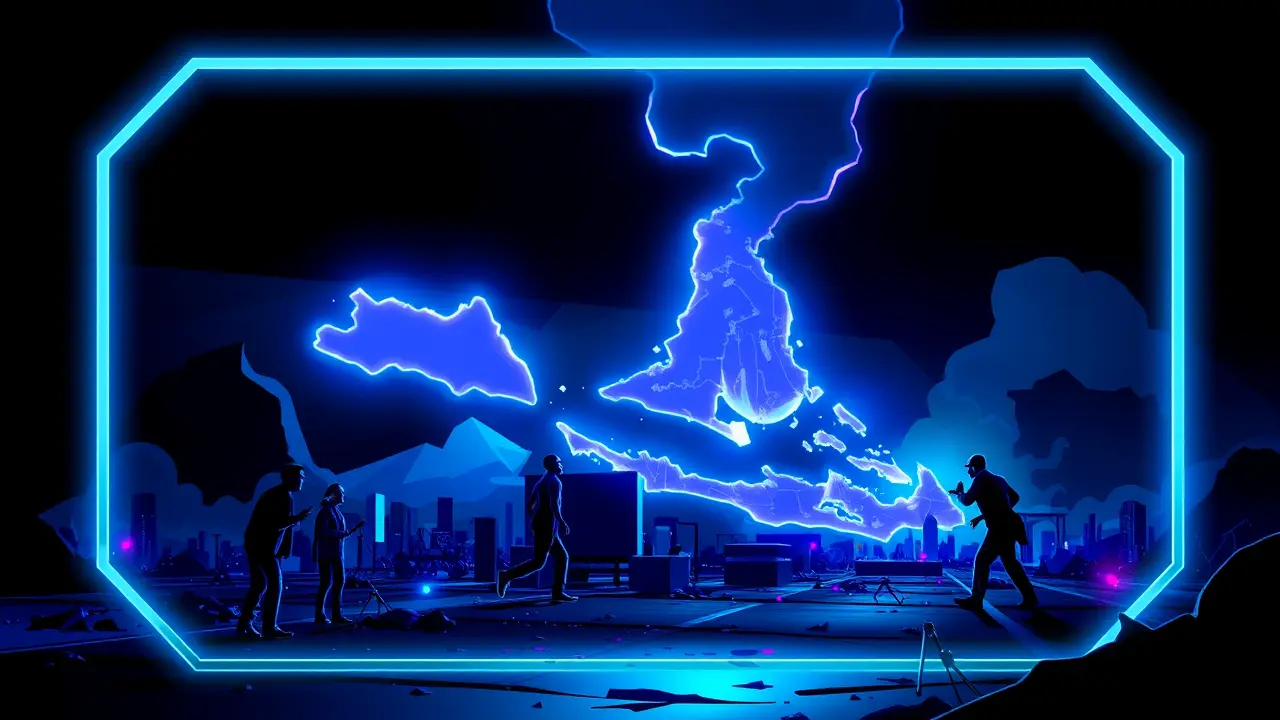
PoliticselectionsPresidential Elections
Samia wins Tanzania election amid deadly post-election protests.
EM
Emma Wilson
1 day ago7 min read
The streets of Dar es Salaam and other Tanzanian urban centers remained volatile and tense on Friday, transformed into theaters of dissent and defiance as young protesters, their voices raw with outrage and their faces etched with a profound sense of betrayal, denounced the recent presidential election that declared Samia Suluhu Hassan the victor as a fundamentally unfair process. This was not a spontaneous outburst but the culmination of a slow-burning political crisis, a sequel to the tragic chapter that began with the sudden death of her predecessor, John Magufuli, a leader whose strongman tactics had already constricted the nation's democratic space.The scenes unfolding—of plumes of tear gas mingling with the chants for justice, of makeshift barricades fashioned from burning tires casting an orange, flickering glow against the night sky—are tragically familiar in a region where the sanctity of the ballot box is often contested. The core of the grievance lies in the opaque electoral machinery of the National Electoral Commission (NEC), long accused by opposition groups of being a pliant tool of the long-ruling Chama Cha Mapinduzi (CCM) party.Allegations flew faster than the stones hurled by frustrated youth: pre-stuffed ballot boxes discovered in strongholds of the main opposition, ACT-Wazalendo; the mysterious disqualification of hundreds of their polling agents on flimsy, bureaucratic pretexts; and a pronounced internet slowdown that seemed strategically timed to hinder the flow of independent information and the coordination of citizen oversight. For the young demographic that constitutes the majority of Tanzania's population, this election was supposed to represent a turning point, a chance to solidify the fragile gains made since Samia Hassan took office and began her cautious, yet noticeable, reversal of some of Magufuli's most repressive policies.Her initial overtures, such as unbanning critical newspapers and engaging with foreign investors, had kindled a flicker of hope. Yet, the violent crackdown on these post-election protests, with security forces deploying live ammunition according to unconfirmed but persistent reports from local human rights monitors, threatens to extinguish that hope entirely, revealing a stark continuity in the state's willingness to use brute force to retain power.The international community, particularly regional bodies like the Southern African Development Community (SADC) and the African Union, which have historically been reluctant to condemn fellow member states, now face a critical test of their credibility. Their carefully worded statements calling for 'calm and dialogue' ring hollow to the protesters facing down armored vehicles, and a failure to demand a transparent, independent audit of the election results will be interpreted as a tacit endorsement of a flawed process.The long-term consequences are dire and multifaceted: a further erosion of public trust in democratic institutions could push more disillusioned youth toward radical alternatives; foreign direct investment, so crucial for Tanzania's economic aspirations, may falter as political instability becomes the dominant narrative; and the delicate ethnic and regional balances within the nation could be strained to a breaking point. The tragic irony is that President Samia, now ostensibly confirmed in her role, may find her authority weakened rather than strengthened, her legitimacy permanently questioned by a significant portion of her own populace.She governs a nation standing at a precipice, where the choice between a path of genuine democratic reconciliation and one of deepened autocratic control will define Tanzania's trajectory for a generation. The world watches, and the echoes of these protests, fueled by the desperate energy of a generation demanding a future they can believe in, are unlikely to be silenced by force alone.
#featured
#Tanzania
#Samia Suluhu Hassan
#election
#protests
#unrest
#casualties
Stay Informed. Act Smarter.
Get weekly highlights, major headlines, and expert insights — then put your knowledge to work in our live prediction markets.
Related News
Comments
It’s quiet here...Start the conversation by leaving the first comment.
© 2025 Outpoll Service LTD. All rights reserved.










